Milly Fotso, CEO and founder of The Braided Life, creates a safe space for Black women to embrace and love their hair.
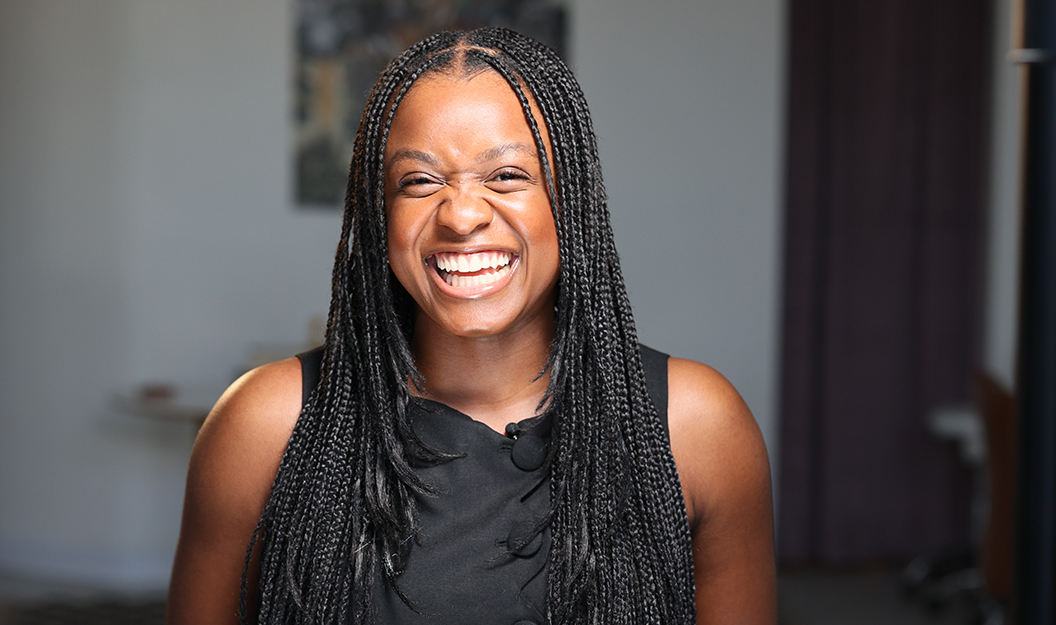
By Janaye Barabin, Photos courtesy of The Braided Life
Like many Black women, Milly Fotso is keenly aware of the power of hair. She founded The Braided Life, a braiding and natural hair salon that is dedicated to providing a safe space for Black women, trans and nonbinary people while celebrating Black hair.
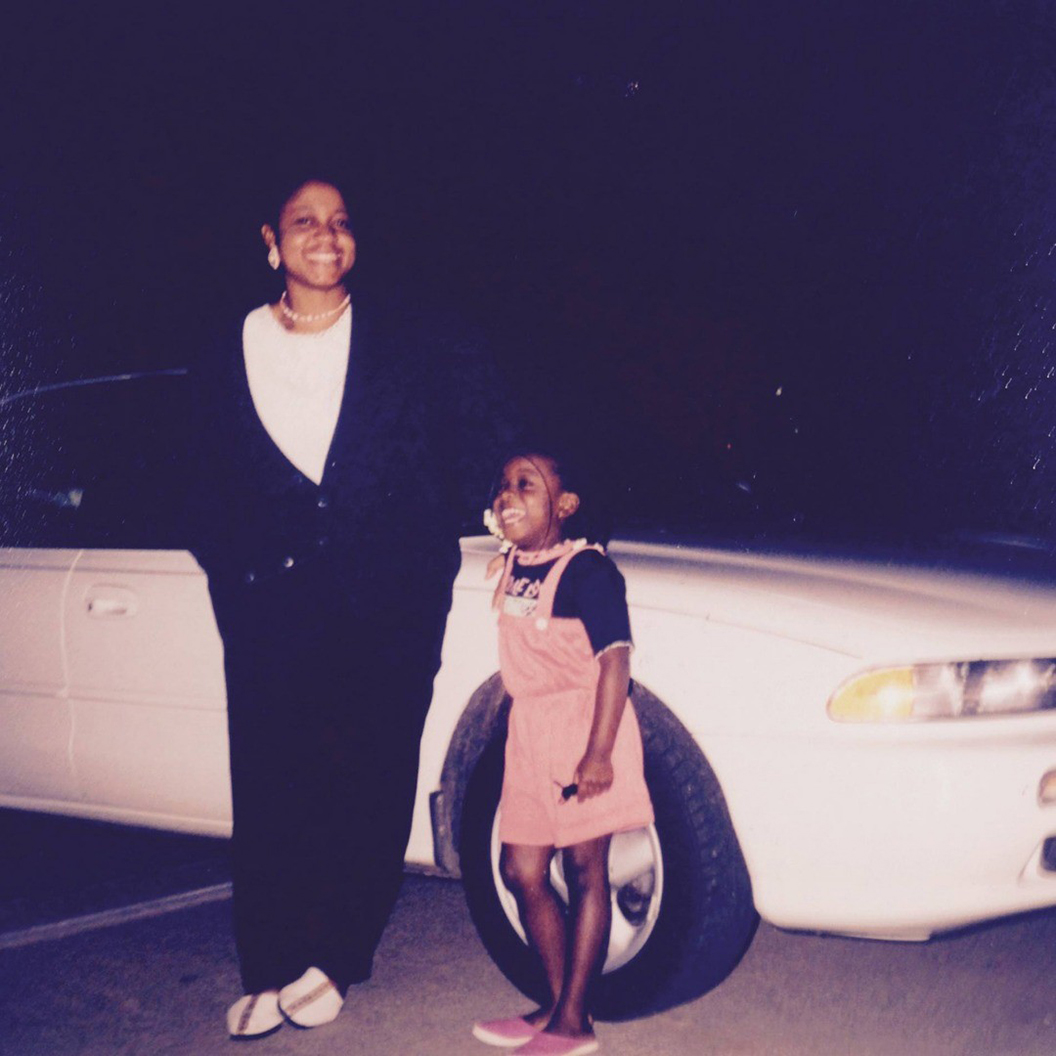
Looking back on her childhood, Fotso believes that braiding was healing for her. Her mother was a braider, and after she passed, her dad became the one who braided her hair. “My brother was a month old when my mother passed, and I kind of stepped into the role of mother,” she says. “I became an adult in a lot of ways. Those times when my dad did my hair allowed me to feel taken care of and like a child again. I really think that was bonding for the two of us and also very grounding for me as a child to have those moments.”
She first thought about opening a salon in 2016, when she started her career in the beauty industry at L’oreal. But her experiences were discouraging. “I was on the corporate side of beauty, and I felt like that environment turned me off to the whole beauty industry. There weren’t really people who looked like me, and it was also like a {The Devil Wears Prada} type of culture.”
She then pursued a career in tech and even started her own company. However, when the pandemic hit, Fotso began to reevaluate her career choices and used braiding as a way to connect with herself. “That was when I started braiding my own hair again,” she says. “It was a very therapeutic experience for me, because you’re having to stand in front of the mirror staring at yourself for eight hours. I think that allowed me to tap into parts of myself that I hadn’t been able to before. That’s when the seeds of The Braided Life started to be planted again.”
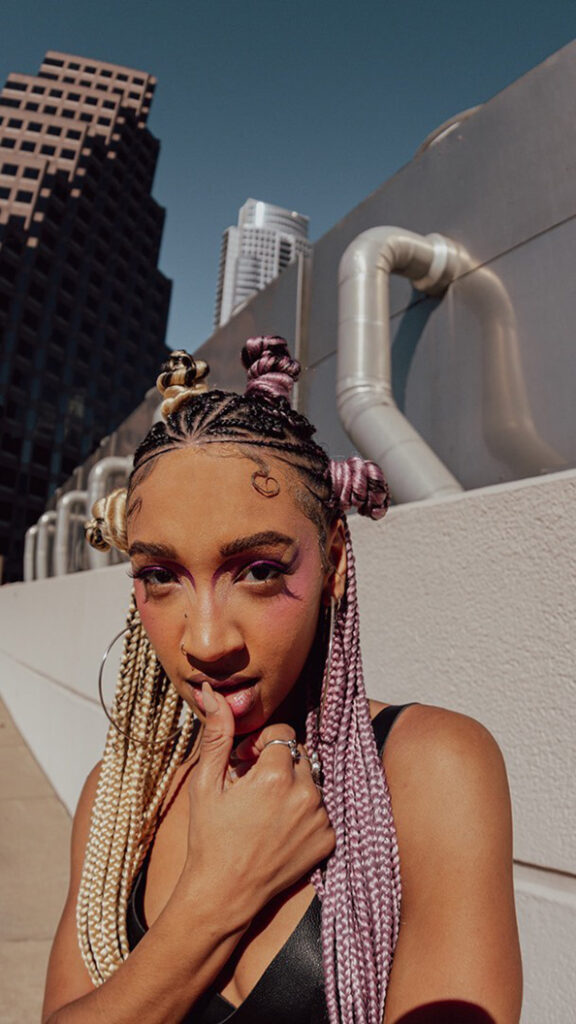
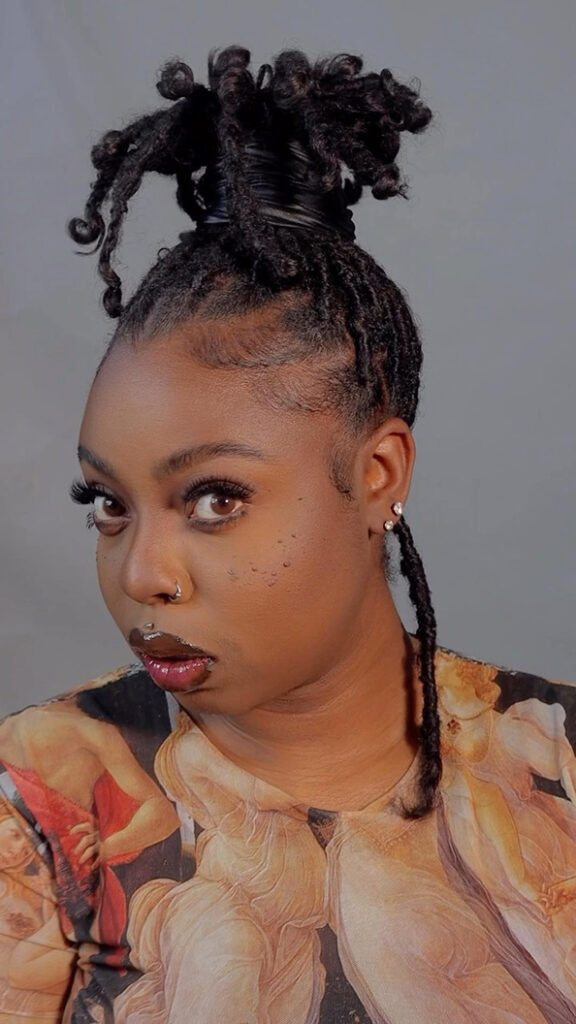
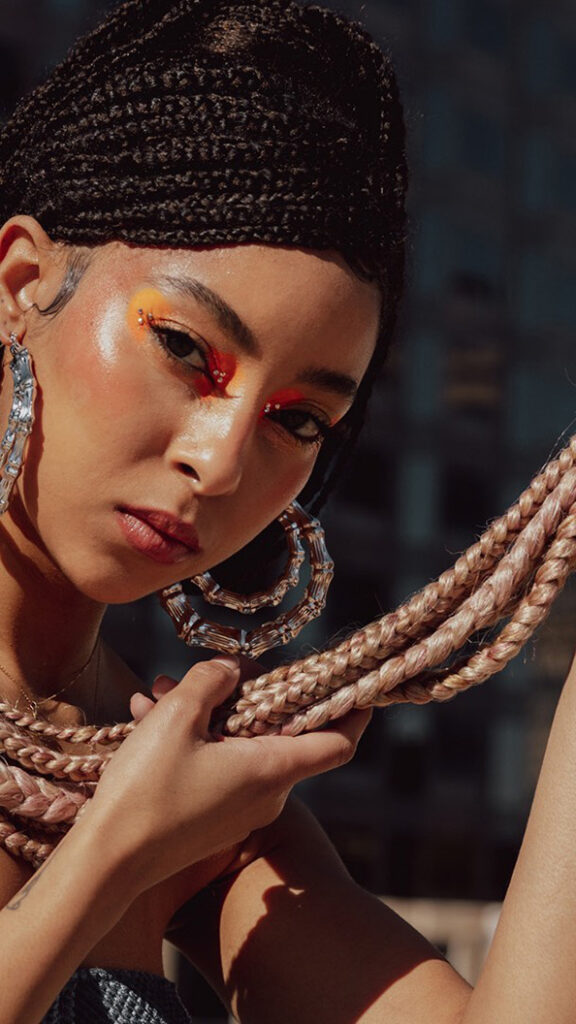
Her original plan was to launch a braiding hair line, but when she did a model call for the initial photoshoot, she was surprised by how many responses she received. “I was only looking for eight models,” she recalls. “We got responses from over 30 Black women. I had never been in a space in Austin with this many Black women before, and it was just this beautiful energy.”
The response from the community inspired Fotso to try a pop-up. While looking for a space, the woman she was working with to lease it became pivotal in her journey. “When [we]had a conversation, I was like, ‘This is $5,000 over my budget. I can’t afford this.’ But she told me she really believed in what I was doing and let me have the space anyway. It was the first time I really believed that the universe was guiding my journey, and I just started to go with the flow of things. I signed a two-month lease. By the end of those two months, we were basically fully booked, so I ended up signing a year lease.”
Fotso is very intentional about the design of her shop because she strives to make it a space where Black people can feel welcome and safe. “Everything in the salon has a curved edge,” she explains, “from the shelving to the curved wall leading to the shampoo area. I did that to create a sense of openness, softness and acceptance. I wanted everyone to feel warm and at home. The table was extremely important to have because I wanted to signal that it was a place to come and gather. There’s also a piece of artwork that is a collage of Black women, nonbinary and trans folks throughout the years, to show Black joy and transformation.”
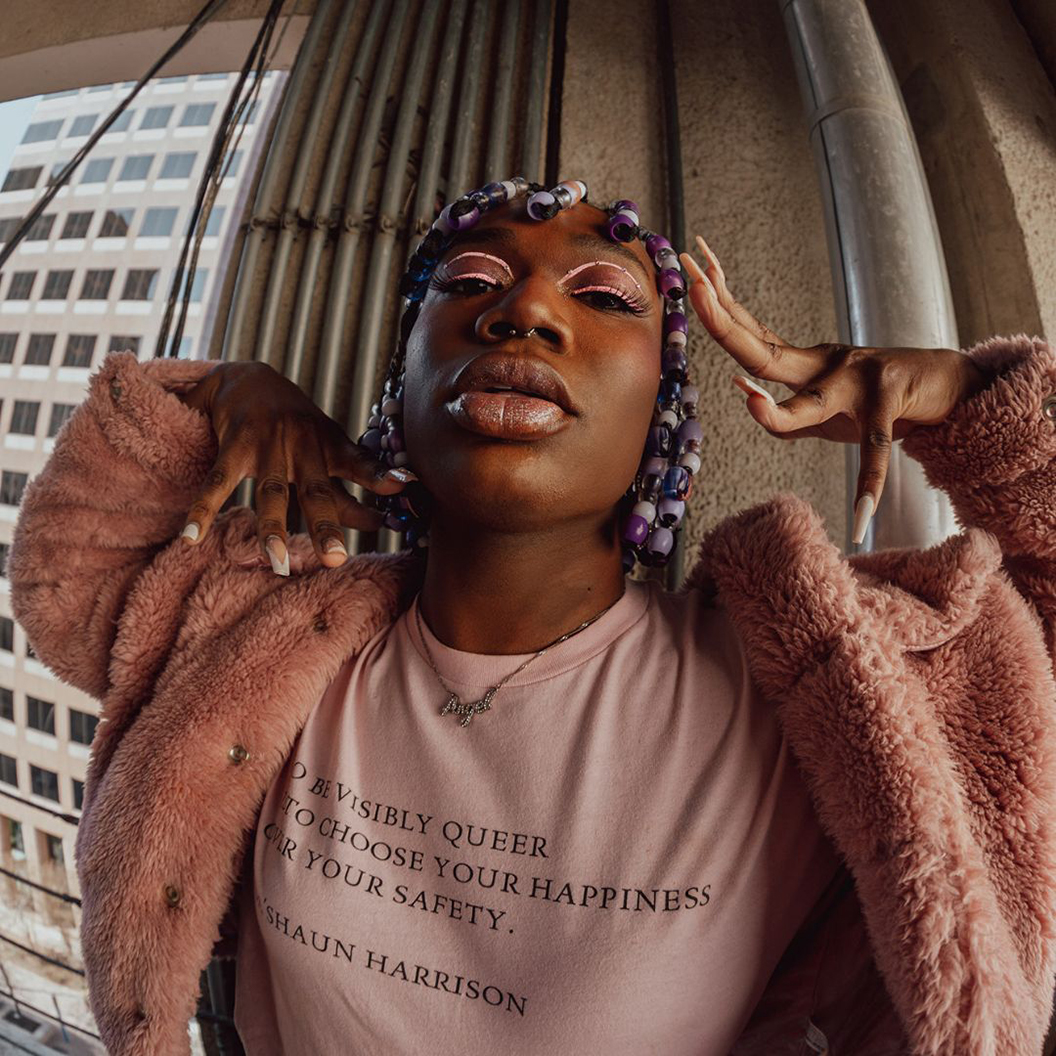
The salon’s location is also intentional. “It had to be on the East Side, and it had to be close to Downtown,” she says. “There are all these highrises now, and the Black community has been pushed out. The East Side was originally for us, so it’s important to me to be there. It’s almost a statement of, ‘You’re trying to push us out, but we aren’t going anywhere.’” As Fotso was looking for a new location, she faced a great deal of discrimination. “A lot of times I would call and tell them I was building a salon, and we would schedule a tour. Then I would show up, and they would start backing out by saying things like, ‘I’m not sure we need a business like yours,’ or asking if I serve primarily the Black community. It was a lot of no after no.”
Despite the obstacles, Milly Fotso has built a thriving business. As The Braided Life continues to grow, Fotso believes it’s essential to support her community. “It’s important to me to create third spaces, places outside of work and home that allow you to make connections with people other than family and coworkers. Those connections and spaces are really important to mental health. I really wanted to be able to foster a sense of safety for the Black community.”
The CROWN Act
In June 2022, the Austin City Council approved implementation of the CROWN Act, an amendment to the definition of Discriminatory Employment Practice, becoming the first city in Texas to do so. The CROWN Act, which stands for “Creating a Respectful and Open world for Natural Hair,” ensures that employees of color cannot lawfully be discriminated against for their hair’s natural texture or wearing protective hairstyles, including locs, bantu knots, cornrows, twists, afro styles and braids. As of the writing of this article, the CROWN Act (HB 567) has passed through the Texas House and heads to the state Senate.

